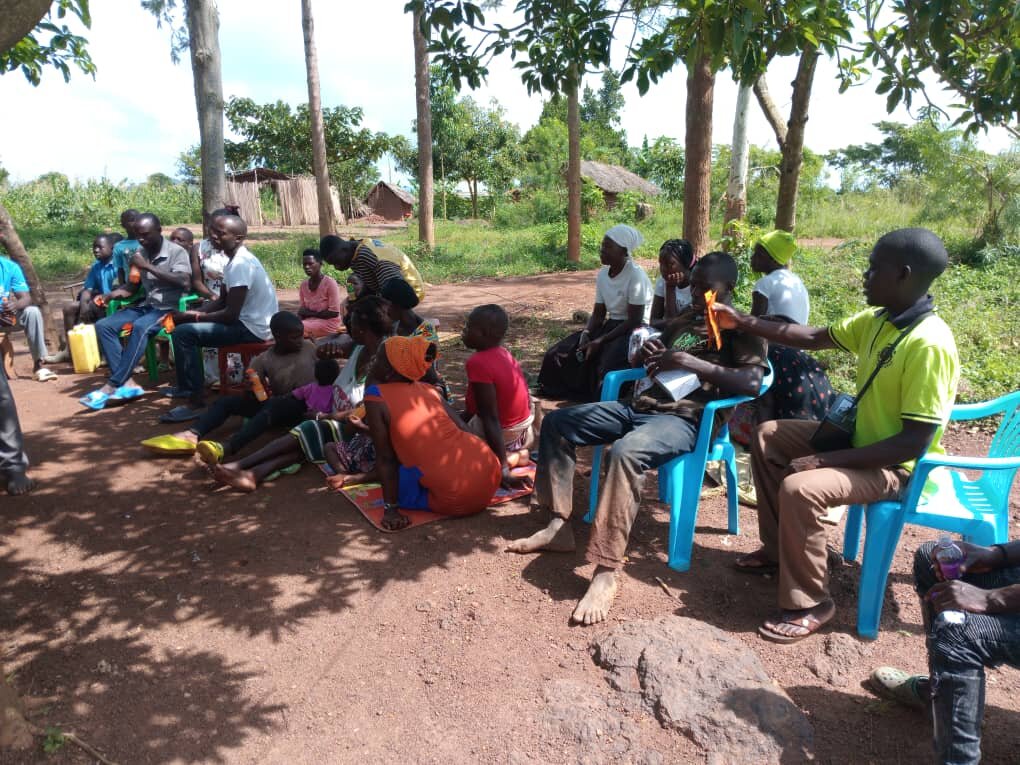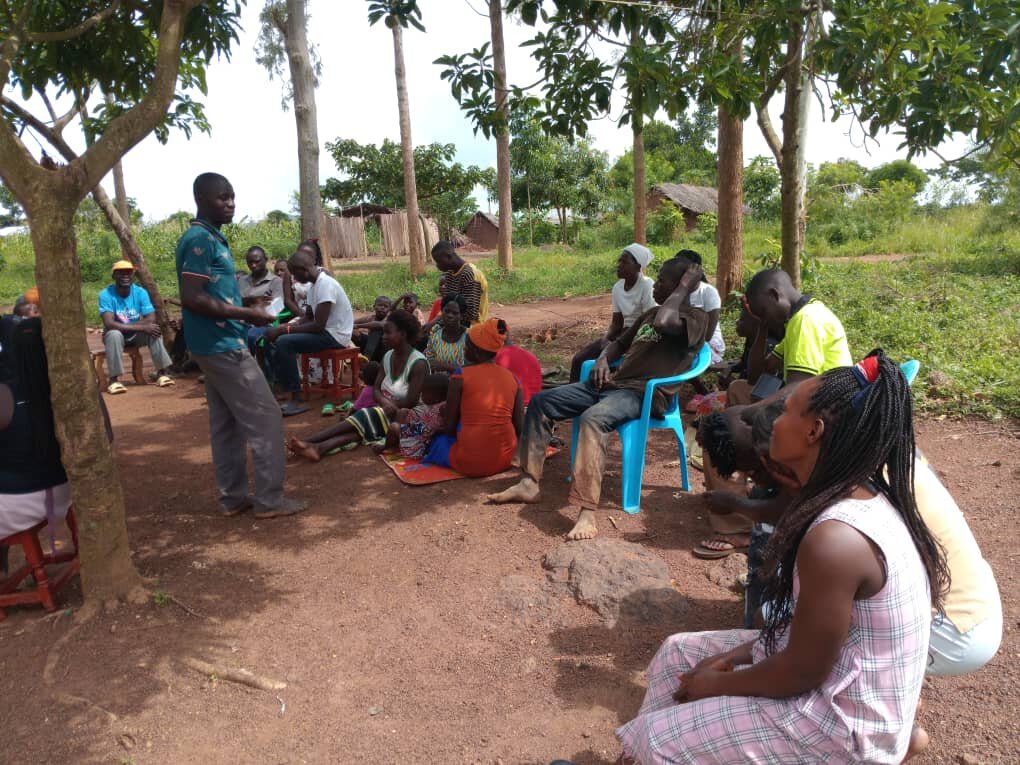Project Report
| Feb 22, 2025
EMPOWERING YOUNG MEN, BOYS AND AGYW IN HIV PREVENTION
![]()
Summary:
The African Child and Youth Development Initiative (ACYDI) in partnership with OVCEG-CSO, they have co-implemented the community dialogues empowering boys, young men, AGYW (10-24 years), Female Sex Workers (FSW), bar workers, and fisherfolks in HIV prevention and awareness messages. The problem is the existence of one health facility in Lwajje subcounty (Lwajje Health Center III) to serve 8 isolated islands and the negative modes of behavior for young women and young men that expose Buvuma islanders to risks of the life such as HIV/AIDS infection and its shattering effects on human development. In Buvuma islands, HIV is transmitted most often through heterosexual intercourse, female sex workers and AGYW aged 10 to 24 are three times more likely to be infected than their male counterparts because they lack knowledge about their bodies and do not have access to basic health services, they are particularly vulnerable. This activity is addressing the negative form of behavior and inadequate knowledge about HIV prevention hence this intervention increases HIV/AIDS awareness and practice of alternative behaviors in the prevention of HIV transmission resulting into behavior change through use of community sensitization and mobilization using music, dance and drama, provision of information, Education and Communication (IEC) to boys, young men, AGYW, bar workers and fisherfolks and Female Sex Workers (FSW) in bar hotspots communities to ensure their participation, contribution and involvement in prevention of HIV/AIDs through change of knowledge, attitudes and practices.
Achievements/Actions taken:
- Trained the community on how to use condoms as a birth control method and HIV prevention.
- Counsellors encouraged PLHIV to disclose their HIV status to their significant others.
- Discordant couples (AGYW) reported that HIV sero-status disclosure offered them the basis to seek permission from their husbands to leave home and seek HIV care. Additionally, disclosure empowered these women to ask for transport fares from their spouses, the PLHIV who had disclosed their HIV status were reminded, encouraged, and supported to keep clinic appointments and adhere to treatment.
- Educating the patients, the threats in missing appointments hence improvement in knowledge, attitude and behavior change by Female Sex Workers (FSW) and AGYW.
- Encouraged to use condoms since it’s both the birth control and HIV prevention method.
- The condoms distributed will prevent the boys, young men, AGYW, FSW from spreading the disease and further HIV/STI infections.
- Psychosocial support and counselling will help the affected person living with HIV to cope from the stigma and improve on behavioral change.
- Psychosocial support motivated them to seek HIV care
- The VHTs and Health workers counseled boys, young men, AGYW, FSW, bar workers, and fisherfolks trained them in behavior Change aimed at reinforcing positive and safe health behavior.
- Conducted individual counselling sessions with boys, young men, AGYW, FSW, bar workers and fisherfolks.
- Ensured confidentiality of the client’s data.
- Health workers from Lwajje health facility provided psychosocial counselling.
- The project team emphasized that community participation was ensured through the utilization of existing community structures such as local council leadership, cultural leaders, political leaders, religious leaders, health workers and VHTs to mobilize the communities for involvement and participation in HIV prevention.
- Condom distribution and promotion was conducted.
- ACYDI distributed 10,604 (5,234 Male condoms received by males) and 5,370 Male condoms received by the females.
The approaches used to implement the activities:
- Conducted community condom education promotion and distribution with health workers.
- Conducted counselling sessions and group focused sessions with the communities that focused on the SNS approach.
- Conducted couple counselling and early linkage to care through information giving and emotional support.
- Conducted psychosocial counselling
- Health workers, VHTs, ACYDI and OVCEG staff conducted a dialogue with the communities, the capacity building educated them how to provide and share health knowledge and information to others in the project area.
- Storry telling sessions have also been organised where the communities shared testimonies and personal experiences of living with HIV to raise awareness and promote empathy.
- Local Council 1 committees helped in mobilization of communities for HIV prevention awareness.
Challenges encountered during implementation:
- Unavailability of female condoms at the health facilities (Lwajje and Lubya health facilities)
- Condoms are out of stock at Lwajje health facility.
- Poor photos resolution due to lack of Tablet/Digital camera while in the field.
- Insufficient laptops for report writing and submission.
- Some PLHIV did not want pictures to be taken for the purposes of confidentiality.
- Some female PLHIV reported that they had not sought HIV care because their partners refused to allow them to go, threatening violence if they went without their consent/approval
- Lack of health education
- Inadequate training of health workers in breaking bad news e.g. educating and supporting patients in delivery of test results.
- Inadequate resources and laboratory services
- Distance and unreliable water transport system to the health facilities.
- Depression, stigma, anxiety and shame of the clients
- Factors related to treatment burden like side effects
- Lack of end of the month meeting of the people living with HIV/AIDS
- Unavailability of life jackets while traveling via water transport (Boat).
Suggested Solutions:
- Procurement of female condoms at the health facilities (Lwajje and Lubya health facilities).
- Recommend use of promotional IEC materials such as branded organizational banners, Branded T-Shirts, branded materials etc.
- Peer education and outreaches are encouraged so that community members are trained as peer educators in providing HIV prevention information and support to their peers.
- Promote use of media and communication campaigns e.g. radio and social media to disseminate messages and promote behaviour change.
- Engaging cultural, religious leaders and faith leaders to promote HIV prevention and support through recognizing the importance of cultural and spiritual values in shaping community responses to HIV/AIDs.
- Provide capacity building health education to the health workers.
- Training health workers in breaking bad news e.g. how to educate and support patients in adherence and delivery of test results.
- Review adherence and treatment for unstable young men, AGYW, FSW, bar workers, and fisherfolks on treatment.
![]()
![Share on Twitter]()
![Share on Facebook]()

